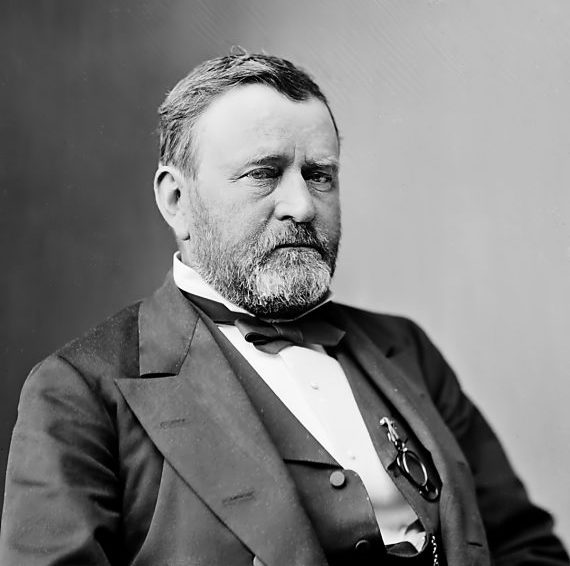
Despite his unrivaled popularity after the Civil War, Republcan Ulysses Grant won the presidency merely three years later in 1868 by a popular vote margin of only 53%-to-47%. In fact, if not for the votes of ex-slaves that had only gained suffrage during the preceding twelve months, he would have lost the popular vote. Thus, he was the choice of only a minority of whites. Obscure sections of the 1868 Republican Party Platform and the Fourteenth Amendment ratified later that same year provide clues to explain the curiosity. They also reveal that it was more than a mere historical footnote.
Although the Platform’s second plank mandated black suffrage in all former Confederate states, it left it as an historical state’s right in all the others. Thus, Republicans took the position that state’s rights under the Constitution were not applicable to the all states but could be selectively vouchsafed by their Party for political purposes. The inconsistency resulted from doubts that Northerners would vote the Party ticket if it supported mandatory black suffrage in all states. At the end of the war only five New England states with minute black populations permitted blacks to vote. Six additional Northern states where blacks composed just one percent of the population rejected black suffrage between 1865 and 1868. Connecticut, Minnesota, and Wisconsin did so in 1865, while Kansas and Ohio followed in 1867 as did Michigan in 1868.
Although universal black suffrage would be extended to the North in 1870 by the Fifteenth Amendment, the region experienced only a modest adjustment given its tiny African American population. By contrast, ex-slaves accounted for 40% of the population of the former Confederate states and half or more of the voters in five of them due to disfranchisement of selected ex-Confederates.
Republicans adopted two measures to get Northerners to vote for Grant even if the voters didn’t want to empower the Party to form a Republican fiefdom in the South via universal black suffrage in the region. The two factors manipulated the primal emotions of fear and greed among holders of federal war bonds. Republicans implied that the investors would lose money if Democrats won the 1868 election but would avoid loss, and might even get a windfall gain, if Republicans won.
First, the Fourth Section of the Republican-authored Fourteenth Amendment stipulated, “The validity of the public debt of the United States . . . shall not be questioned.” It also specifically repudiated the debts of the Confederacy and its component states. Second, the third Republican Party Platform plank states, “We denounce all forms of repudiation . . . of the public indebtedness . . . not only according to the letter, but the spirit of the laws under which it was contracted.”
During the Civil War the federal government’s debt increased 41-fold from $65 million to $2.8 billion. Most of it was in the form of bonds purchased by many patriotic Northerners to support the war effort. Banks also bought the bonds, particularly after the 1863 National Banking Act enabled them to use them as reserve collateral. Prior to the Act, gold was the only respected bank reserve. But gold paid no interest whereas the federal bonds paid interest semiannually, in gold. Thus, the National Banking Act was a boon for Northern banks.
Grant’s campaign deliberately scared Northern bondholders by suggesting that Democrats might repudiate the federal bonds and even require payment of Confederate bonds. The Republicans’ third Platform plank assured bond-holding voters that the Party would support full repayment of their investment with interest. Moreover, the “letter” and “spirit” language of the plank were code terms, implying that bondholders would get a windfall gain if they voted Republican.
Specifically, investors bought nearly all of the war bonds with greenbacks that traded at a fluctuating discount to gold during the war. The discount was as much as 65% in July 1864 when Grant was stalemated at Petersburg and Sherman’s progress in Georgia seemed slow. Thus, at that time a greenback dollar was worth only thirty-five cents in gold. Republicans argued that the “spirit” under which the debt was “contracted” indicated that the the bonds must be repaid in gold, which would be a windfall gain to bondholders. Consequently, the first bill Grant signed after he became President in March 1869 was the Public Credit Act, which required that the federal debt be repaid in gold.
Concerns that Democrats would require American taxpayers to repay Confederate debts were preposterous, but the accusations were politically effective for the Republicans. Where fear rules, reason is impotent.
Peeling back the onion of politically correct history often reveals the ancient wisdom: “Money makes the World go ’round.”






